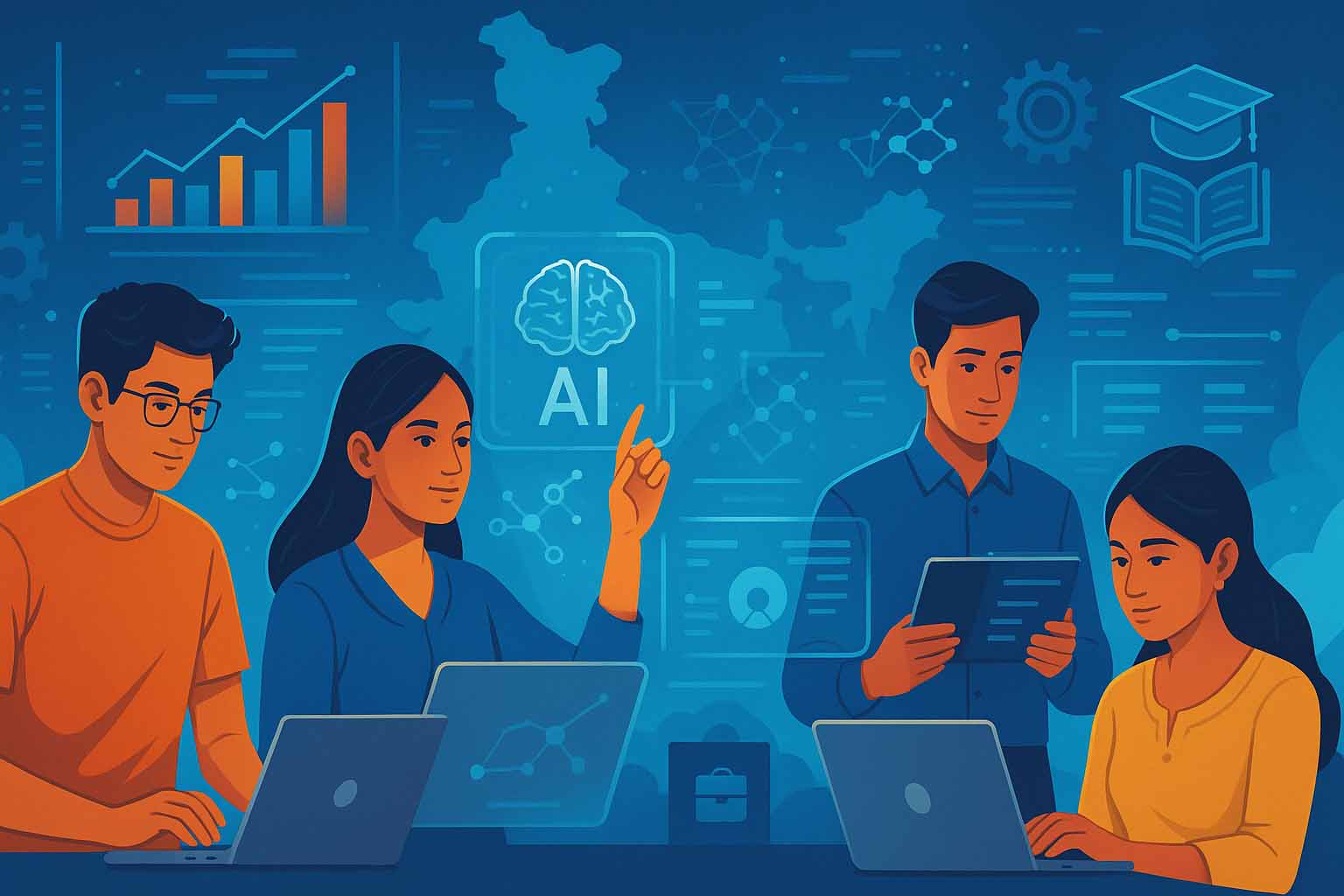Why India’s AI Education Revolution Could Change Everything
Imagine a classroom where AI isn’t just a subject but a daily companion—reshaping how children learn, how teachers teach, and how future careers are imagined. This is not science fiction; it’s rapidly becoming reality in India, a country gearing up to balance technological innovation with educational reform.
Although the video doesn’t have a title or known creator, the discussion around AI’s future in Indian education and jobs is so crucial that it demands attention. The integration of AI signals a profound shift not just in technology, but in the very fabric of India’s workforce and learning culture.
How Will AI Reshape Jobs Across India?
According to recent projections, by 2030, nearly 30% of global work hours could be automated. What does this mean for India’s massive and diverse labor market?
– Automation is coming, but so is opportunity. Jobs in routine, manual tasks are at risk, but new roles in AI development, data science, and digital infrastructure are opening up.
– Workforce upskilling is essential. The focus isn’t just on losing jobs but transitioning skill sets to meet future demands, particularly in emerging tech sectors.
What is NEP 2020 and Why Does it Matter for AI Education?
India’s National Education Policy (NEP) 2020 is a landmark move to align education with future economic needs. One of its boldest initiatives is the incorporation of AI, coding, and digital literacy from early grades onwards.
– This policy signals a paradigm shift, positioning India’s youth to not only use AI as consumers but to innovate and lead.
– It highlights interdisciplinary learning, blending science, technology, and ethics to prepare students for real-world AI challenges.
Beyond the Policy: Real Challenges and Ethical Considerations
While NEP 2020 is visionary, practical implementation faces hurdles:
– Infrastructure gaps in rural and underserved regions could widen inequality.
– Teacher training needs are immense to effectively deliver AI education.
– Ethical literacy must keep pace, ensuring future generations understand AI’s societal impacts and biases.
Balancing rapid technological adoption with equitable access and ethical awareness will be key to India’s success.
Why Should You Care About AI and Education in India?
India’s education system is the world’s largest, making this transition a global determinant for AI’s future workforce. What India does today will ripple across industries, economies, and educational models worldwide.
For anyone fascinated by the future of work, education innovation, or AI ethics, keeping an eye on India’s journey offers invaluable insights.
—
Explore more thought-provoking discussions on AI’s evolving role in our society.
See more AI news and ethics topics
—
FAQ
Q1: How is AI expected to impact jobs in India?
By 2030, nearly 30% of global work hours could be automated, and India is preparing by integrating AI into school curriculums.
Q2: What is NEP 2020 and how does it relate to AI?
India’s National Education Policy 2020 introduces AI, coding, and digital literacy to make future generations job-ready.
Q3: What are the biggest challenges in implementing AI education in India?
Infrastructure disparities, teacher training, and ensuring ethical understanding in AI are key challenges.
📢 Want more insights like this? Explore more trending topics.

